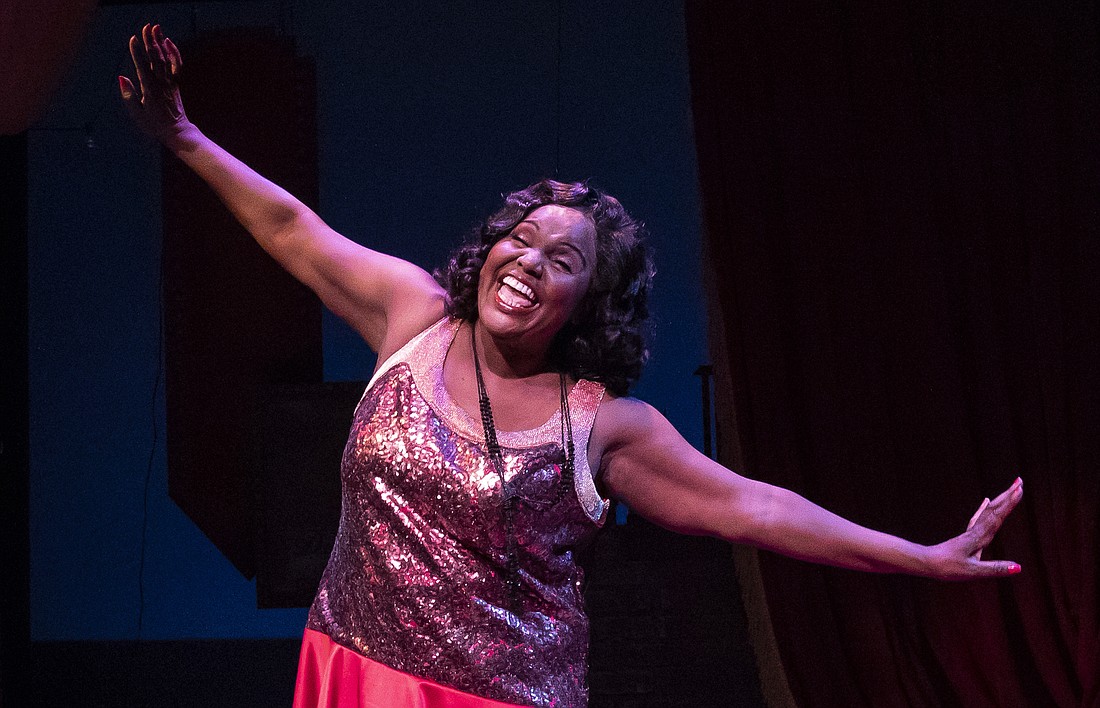- May 28, 2025
-
-
Loading

Loading

Larry Parr’s “Ethel Waters: His Eye Is on the Sparrow” premiered at Florida Studio Theatre in 2005. It’s back this summer, and still packs a one-two punch.
Parr’s musical play tells Ethel Waters’ life story while singing her hit songs. What else would you expect? Most theatrical biographies about great singers make the same claim. But they’re usually glorified revues sprinkled with fun facts. This is the real deal. Parr weaves song and story together — and gets both right. Let’s start with the story ...
Waters’ life was hard from the start. She was an African-American born at the dawn of the 20th-century when naked white racism was the American way. On top of that, she was a child of rape, and grew up in “Whore’s Alley” in Philadelphia. Thanks to a godly grandmother and her own grit, Waters survived beatings, scorn, neglect, an abusive childhood marriage, a horrific car wreck, pervasive racism and a close call with a lynching. Against all odds, Waters escaped the slums and became a star, first on the black vaudeville circuit, and then in Hollywood and on Broadway.
Waters’ hard-won success hardened her heart. Her emotional walls destroyed her second marriage to her one true love. After that, she took comfort in junk food, and became dangerously obese. Waters’ acting and singing career went to hell — until she gave her heart to God and the Billy Graham Crusade, where she was a crowd-pleasing gospel singer until her death in 1977.
Waters’ bittersweet history emerges in counterpoint with her signature songs: “This Joint Is Jumpin,’” “Sweet Georgia Brown,” “Stormy Weather,” “His Eye Is on the Sparrow” and “Black and Blue” included. Song and story fuse seamlessly in a character-based narrative. There’s no obvious narrative arc, aside from the roller-coaster ride of Waters’ life. Fortunately, it’s quite a ride. And Waters was quite a character.
So how do you shoehorn that character in a two-act play? Parr’s script is a first-person narrative, told in Waters’ own words, drawn from her autobiography. Both words and songs are true. But they’d ring false without the talent to back it up.
Jannie Jones delivers. (She’s reprising her portrayal in the premiere, and in many productions around the country.) It’s a one-woman show, though she’s not alone. She’s backed up by Jim Prosser on keyboard. But the weight of Waters’ story is on Jones’ shoulders. It takes an icon to evoke an icon. Jones has what it takes.
As a singer, Jones is a shape-shifter — operatic coloratura one scene, honky-tonk blues the next, then sophisticated jazz, gospel, you name it. As an actor, she’s a force of nature. Jones brilliantly characterizes Waters’ evolution from childish imp, to defiant youth, to bitter middle age, to born-again senior.
Director Kate Alexander turns Jones loose to bring Waters’ larger-than-life personality to life on stage. Adrienne Webber’s quick-change costumes echo the strange changes of Waters’ history. Ellie Mooney’s choreography energetically captures the dance styles of different decades; Dr. Justin P. Cowan’s snappy music direction sets the period tune. The combination of hypnotic projections and Isabel and Moriah Curley-Clay’s ramshackle, tumbledown set creates the perfect background for the story of a star who was always an outsider.
Like any great storyteller, Parr gets to the heart of the story. Waters’ biography begins as an underdog’s success story; it ends as a redemption song. Waters’ redemption includes forgiving the “ofays” who made her life a living hell. (Not all white people are bad! Not all black people are good!) Including that revelation is risky for a white scribe. (Parr lampshades this in the scene where Waters gripes about white screenwriters who dare to speak for black women.) Ending with Waters’ embrace of Billy Graham is another risk.
But redemption is greater than any theological label. And Waters’ biography is what it is. Her happy/sad life was full of contradictions. So be it. Waters was large, and she contained multitudes. Parr doesn’t airbrush out the contradictions.
Without the right actor, Waters’ messy life could be a mess on stage. But Jones’ captivating, spirited portrayal brings it all together. Thanks to her amazing talent, you’ll feel like you’ve met Ethel Waters when the play is done.